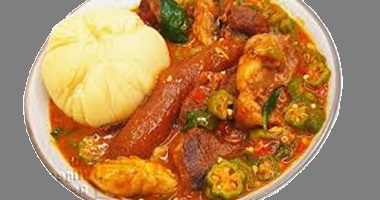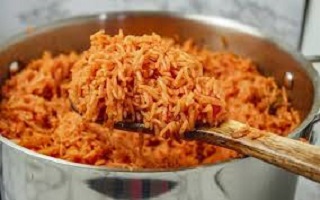Nigerian Foods for Diabetic Patients: Healthy Meals for DM
Nigerian Foods for Diabetic Patients: Healthy Meals for DM

Diabetes, often known as Diabetes Mellitus (DM), is a long-term illness characterized by elevated blood sugar levels.
It occurs when the body’s insulin synthesis is insufficient and/or the body’s cells do not respond to insulin appropriately.
Frequent urination, excessive thirst and hunger, unexplained weight gain or loss, exhaustion, male fleshly dysfunction, and numbness in the hands and feet are some of the most typical symptoms.
Checkout >>>>
- Top 8 Healthy Nigerian Foods to Keep the Doctor away
- Vegetable Sauce for White Rice | Easy Healthy Nigerian Stew
- Healthy Nigerian Breakfast Ideas: Breakfast Timetable in Nigeria
Nigerian Foods for Diabetic Patients
Diabetes requires proper care, and one of the most important aspects of that management is diet adjustment.
Crisis or problems can be prevented by eating healthy foods and using recommended drugs like metformin.
What Nigerian foods should diabetes milletus patients avoid? Nigerian Foods for Diabetic Patients
Are there low sugar Nigerian diets for diabetics? What is the meal plan for diabetes patients? Nigerian meal or food timetable for diabetic patients
If you’re trying to reduce weight, Nigerian foods for diabetics are also a good option.
Even if you are not diabetic, you probably know someone who is or has a family member who is, and we are all aware of the difficulties they face every day when deciding what Nigerian cuisine to eat or avoid.
You can pay attention to what you eat as a diabetic in Nigeria without stressing over everything.
Diabetic diets in Nigeria are high in fiber and low in carbs. Avoid sweets, fizzy drinks, and fatty foods to keep healthy.
What are Some Nigerian Foods for Diabetic Patients ~ What should a diabetic Nigerian eat?
Healthy Nigerian Foods for Diabetic Patients
Diabetes, often known as diabetes mellitus, is a long-term illness characterized by elevated blood sugar levels.
It occurs when the body’s insulin synthesis is insufficient and/or the body’s cells do not respond to insulin appropriately.
Frequent urination, excessive thirst and hunger, unexplained weight gain or loss, exhaustion, male sexual dysfunction, and numbness in the hands and feet are some of the most typical symptoms.
There are several forms of diabetes:
- Type 1 diabetes, in which the body cannot make insulin.
- Type 2 diabetes, in which the body does not create enough insulin to function properly.
- Gestational Diabetes is a kind of diabetes that affects women during pregnancy.
Being diabetes does not mean you have to eat bland or monotonous cuisine; many healthy, enjoyable meals are less likely to raise blood sugar levels.
Diabetic people should avoid eating everything. They are not, however, limited to bland or tasteless meals.
Whole, unprocessed foods, such as fruits, legumes, and vegetables, are often the greatest foods for diabetes.
The following are some basic guidelines:
- Brown rice, whole-grain bread, and pasta, buckwheat, quinoa, millet, bulgar, and rye are all nutritious complex carbohydrates that are high in fiber.
Carbohydrate servings should be limited to 60-75 grams per meal.
- Monounsaturated and polyunsaturated fats found in foods can help decrease cholesterol levels. Canola, olive, and peanut oils are among them. Coconut and palm oil should be avoided.
- Consume fish at least twice a week.
- Trim fat and skin from meats before cooking them. Dried fish and shrimp usually have a higher salt level than fresh seafood.
- Fried delicacies such as plantain chips, chin chin, and puff puff should be avoided. Try rice cakes, fresh fruit, or nuts instead.
- To enhance fiber and satiety, add extra veggies to stews and soups.
- Serve dishes with a side salad dressed in a low-fat dressing.
- Use fresh tomatoes or tomato sauce with minimal sodium.
- Use reduced-sodium bone broth or homemade bone broth instead of spice cubes.
Nigerian Foods for Diabetic Patients ~ A selection of healthy local foods that can be consumed on a diabetic menu is as follows:
Nigerian soups ~ Nigerian Foods for Diabetic Patients
- Vegetable soup
- Okra soup
- Edikan Ikong
- Waterleaf soup
- Ogbono soup
- Egusi soup
- Afang soup
- Gerri Soup
- Ewedu
Staple Foods (Swallow) ~ Nigerian Foods for Diabetic Patients
- Wheatmeal
- fufu
- Guinea cornmeal
- Pounded Unripe plantain
- Amala
Stews and Sauces ~ Nigerian Foods for Diabetic Patients
- Tomato stew
- Garden egg stew
- Shredded chicken sauce
- Shrimp sauce
- Fresh Fish sauce or stew
- Smoked fish sauce
Low Carb Meals ~ Nigerian Foods for Diabetic Patients
- Brown basmati rice and stew
- Unripe plantain porridge
- Moi Moi
- Boiled plantain with stew
- Roasted plantain with fish sauce
- Plantain with beans porridge
- Beans and whole wheat bread
Healthy Snacks ~ Nigerian Foods for Diabetic Patients
- Garden eggs with peanut butter
- Coconuts
- Boiled groundnuts
- Akara balls
- Tiger nuts
- Nigerian pear
- Comfort foods
- Isi ewu
- Nkwobi
- Cow leg
- Cow tongue
- Fish pepper soup
- Chicken pepper soup
- Snail pepper soup
- Peppered snail
- Liver sauce
- Gizzard pepper soup
- Healthy drinks
- Zobo without sweeteners
- Guinea corn (Dawa)
- kunu
- Millet (joro)
- Unsweetened yogurt
Remarks
Diabetic patients should eat a high-protein, low-carb breakfast.
What You Should Avoid ~ Nigerian Foods to avoid
- Fried foods
- Sugar-sweetened beverages
- Canned foods
- White bread
- Pasta
- White rice
- Fruit flavored yogurt
- Flavored coffee drinks
- Honey
- Fruit juice
These are not the only Nigerian food ideas for diabetics; there are many others to help diabetics not go hungry.
These are only intended to serve as instructions.
- Sugars, processed foods, alcohol, caffeine, and even white carbohydrates can all be excluded from your list.
- Monitor your blood sugar levels regularly. On the site, there’s a self-help pee test page that can help you figure out how much sugar is in your blood.
- To find out your typical blood sugar for the last 2 to 3 months, get A1c blood tests from your hospital or doctor.
- Keep track of your carbs. You can easily do this by writing down all of the foods that you consume.
- Maintain a healthy blood pressure, cholesterol, and triglyceride level (take tests, consult a doctor, avoid or substantially reduce red meat consumption, get appropriate sleep (at least 8 hours every day), and avoid situations/events that can make you upset. Make an effort to be cheerful.
- Keep moving forward. Even if you are retired, you should avoid becoming sedentary because a sedentary lifestyle can lead to a variety of health problems.
- If you must watch television, get up and move around now and then. Cleaning, washing, arranging, and going on walks in your neighborhood are all good ideas.
- Jog right now, in your kitchen, in your bedroom, or your living room.
- Take care of your anxiety. Life is becoming increasingly difficult, and you must find a technique to lessen your stress levels.
- Live simply, don’t strive to impress others, and save as much as you can and spend less.
Diabetes Health Guidelines
Get rid of the additional pounds. This can be accomplished without going hungry if you eat fewer quantities and consume more proteins and veggies than carbohydrates.
- Exercise… whether you have a few minutes or hours to spare, there are youtube videos that can assist you in exercise.



Pingback: Healthy Nigerian Meals for Diabetic Patients - 9jafoods